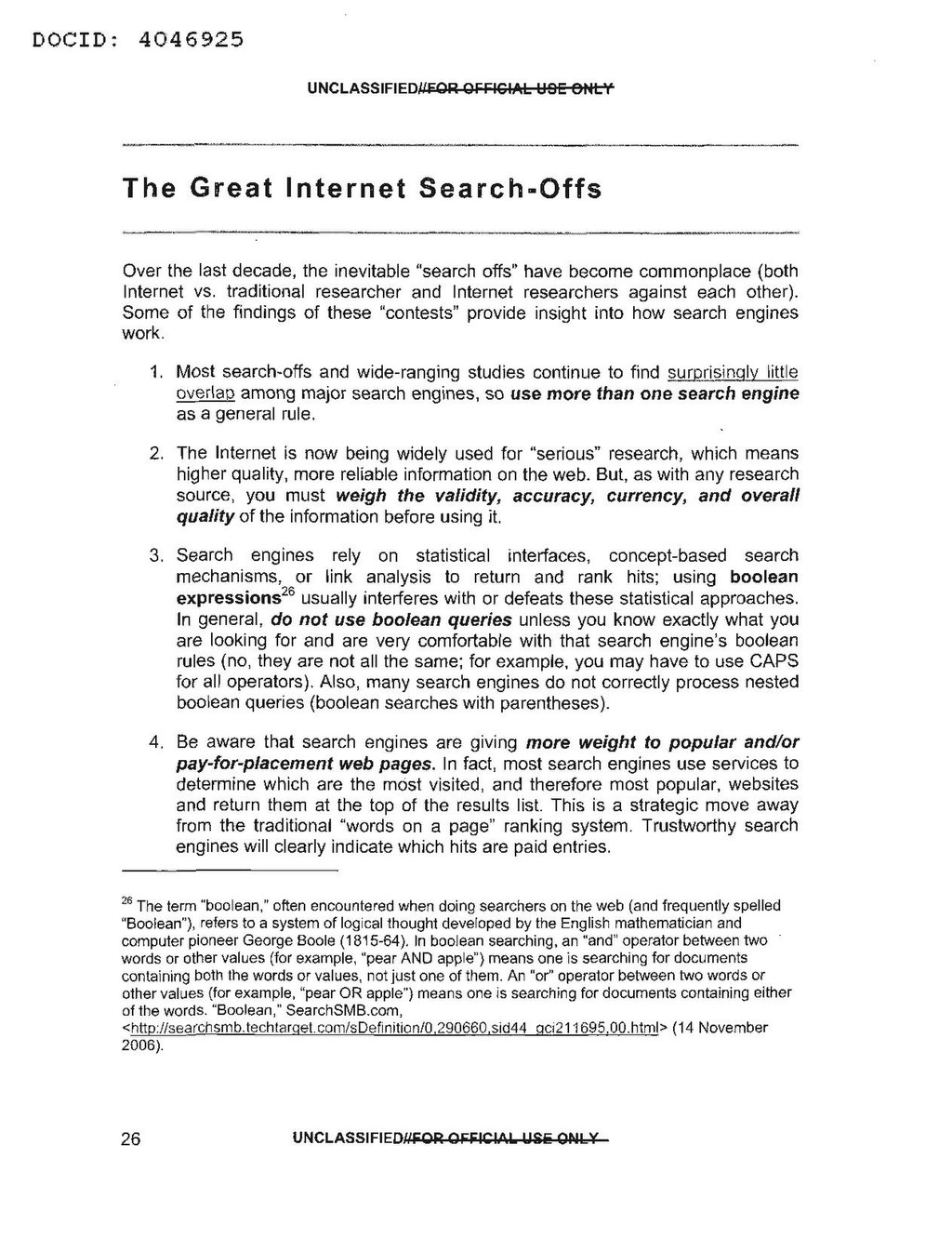DOCID: 4046925
UNCLASSIFIED//FOR OFFICIAL USE ONLY
The Great Internet Search-Offs
Over the last decade, the inevitable "search offs" have become commonplace (both Internet vs. traditional researcher and Internet researchers against each other). Some of the findings of these "contests" provide insight into how search engines work.
- Most search-offs and wide-ranging studies continue tofind surprisingly little overlap among major search engines, so use more than one search engine as a general rule.
- The Internet is now being widely used for "serious" research, which means higher quality, more reliable information on the web. But, as with any research source, you must weigh the validity, accuracy, currency, and overall quality of the information before using it.
- Search engines rely on statistical interfaces, concept-based search mechanisms, or link analysis to return and rank hits; using boolean expressions[1] usually interferes with or defeats these statistical approaches. In general, do not use boolean queries unless you know exactly what you are looking for and are very comfortable with that search engine's boolean rules (no, they are not all the same; for example, you may have to use CAPS for all operators). Also, many search engines do not correctly process nested boolean queries (boolean searches with parentheses).
- Be aware that search engines are giving more weight to popular and/or pay-for-placement web pages. In fact, most search engines use services to determine which are the most visited, and therefore most popular, websites and return them at the top of the results list. This is a strategic move away from the traditional "words on a page" ranking system. Trustworthy search engines will clearly indicate which hits are paid entries.
- ↑ The term "boolean," often encountered when doing searchers on the web (and frequently spelled "Boolean"), refers to a system of logical thought developed by the English mathematician and computer pioneer George Boole (1815-64). In boolean searching, an "and" operator between two words or other values (for example, "pear AND apple") means one is searching for documents containing both the words or values, not just one of them. An "or" operator between two words or other values (for example, "pear OR apple") means one is searching for documents containing either of the words. "Boolean," SearchSMB.com, <http://searchsmb.techtarget.com/sDefinition/O,290660, sid44 gci211695, 00.html> (14 November 2006).
26
UNCLASSIFIED//FOR OFFICIAL USE ONLY
